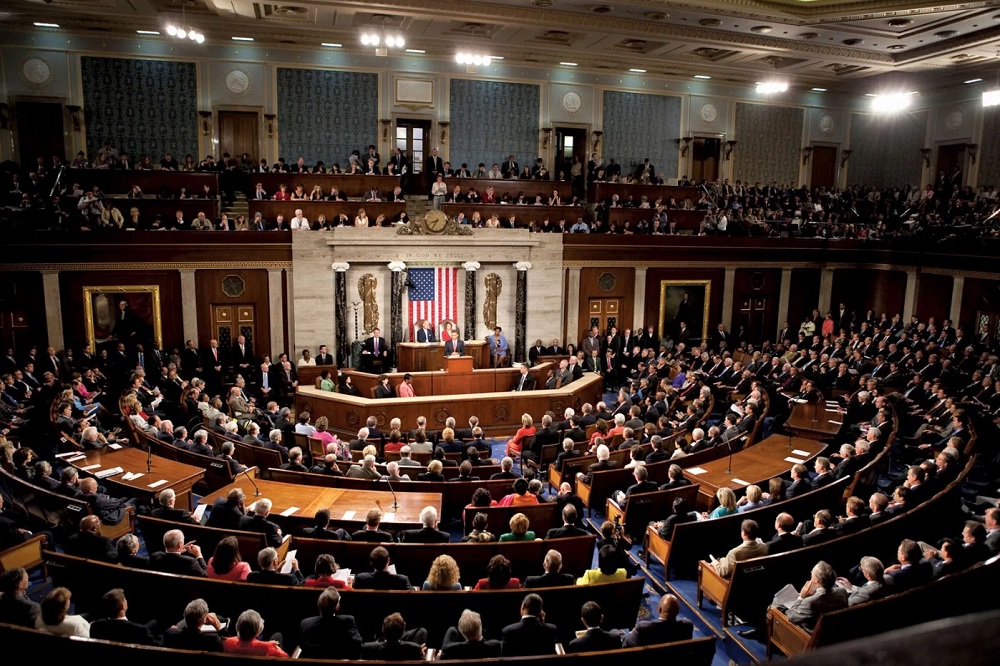
OPINION: This article contains commentary which may reflect the author’s opinion
With recent news related to an attempt to overturn (or correct) the 2020 election, it’s clear that there is still much unknown about the runup to Jan. 6, 2021. It is clear, however, that the procedures used to elect the next president can be manipulated.
The Electoral Count Act has begun to receive some attention from Congress, with a bipartisan group of lawmakers focusing so far on fixing the act. According to the 1887 law, Congress counts the electoral votes after every presidential election. There are a number of ambiguities that were smartly utilized by Trump and his supporters during his campaign for reelection.
It is right that Congress addresses vulnerabilities in our electoral process. We do want the person that wins an election to actually be confirmed. If Democrats attempt to steal another election (They suppressed the Hunter laptop story and called it Russian disinfo – the laptop would have changed the outcome according to many legal experts), there are some things to consider.
When the results of the 2024 presidential election are taken into consideration, Trump’s supporters will not control the vice presidency as they did in 2020. They must therefore devise new strategies based on using the institutions they control in order to regain control of the White House.
Trump’s supporters appear most likely to control the House during the 2024 election if they control a majority. Unless Congress says otherwise, that alone may be enough to nab the presidency.
As a result of the current law, a simple majority in the House of Representatives may not only stall the electoral vote-counting process but may also appoint the president if and when this process fails. If Congress is to prevent this from occurring, it should consider another area of law that reformers have not yet addressed: the law governing presidential succession.
As a result of the process outlined in the Constitution for selecting a new president following a general election, this scenario arises. As required under the 12th Amendment, the vice president, in his or her capacity as Senate president, must publicly open the state electoral votes and count them “in the presence of the Senate and House of Representatives.” To meet this requirement, Congress has traditionally convened a joint session in which the House and Senate meet together to review the electoral votes. Announcing the final results, the vice president then reads the results to those gathered, determining who will be the official president-elect and vice president-elect.
In this joint session, Trump supporters hoped to influence the 2020 election results by objecting to some states’ electoral votes and urging Vice President Pence to change the final results. Congress is therefore working on overhauling the Electoral Count Act, which governs the procedures of this joint session: in order to prevent future manipulations of it. There is currently no solution to the more fundamental question of what would happen if a joint session did not occur.
According to the Electoral Count Act, each House and Senate “shall meet” at a specific date and time to count the electoral votes after presidential elections. Nonetheless, there are reasons to doubt whether Congress can force the House and Senate to take such an action; in particular, the Constitution provides that each individual chamber determines the rules of its own proceedings, not Congress as a whole. When the Electoral Count Act was enacted, legislators recognized this possibility. They did so because they began voting on whether to enter each joint session when the first electoral votes were counted in 1789.
There is, of course, the possibility that a simple majority of either chamber – or just 41 senators in the Senate if one filibusters – can reject a concurrent resolution setting up a joint session. It is also possible that a majority of either chamber can simply refuse to attend, thus preventing a majority of attendees to reach the number the Constitution mandates for each chamber to have a “Quorum to do Business.”
This might be more difficult to accomplish under certain House or Senate rules, such as those that permit a minority to force the attendance of absent peers. Even so, the House adopts its rules only a few days before the election results are released, so any majority in the House who plans to derail the joint session just needs to amend or repeal any rules that are in the way. Similar rules can be amended by a majority of the Senate using the so-called nuclear option, as the Senate has done twice in recent years to end debate on nominations with fewer votes needed.
Hopefully, the situation doesn’t arise where this is needed, but as we know, Democrats play dirty with elections, and they lie about everything. They simply cannot be trusted. If another Covid variant has them lockdown the country again and force mail-in ballots, if they suppress negative news about their candidate and call it Russian disinfo when in fact it’s true, there are options to beat back a steal.
Source: The Republic Brief